In one isolated jungle camp, women are being raped, and children survive with little food and water, according to a man who recently escaped. Sixteen people have died in just 14 days, he told Phuketwan.
''Rohingya die every day in the camp,'' he added. ''They mostly die from becoming too weak or from illnesses contracted while they were being held for months by Immigration in Thailand.''
The camp is one of four that residents say are thriving around the village of Baan Chalung. Armed guards protect the camps, the residents have told Phuketwan.
People who escape and are recaptured are beaten and sometimes killed, said the man who fled.
At the weekend, a reporter clambered through steep jungle and moved close enough to the camp to hear the sound of people speaking the Rohingya language loudly. Other people speaking Thai could also be heard, giving instructions to each other.
According to the man who escaped - we will call him ''A'' - the camp contains about 1500 captive Rohingya.
Local residents confirm that vehicles often move people in and out of the camp, deep in jungle not far from the city of Had Yai, in the Thai province of Songkhla. ''A'' says there are 1500 men, women and children in the camp.
Thai Immigration officers - either acting independently or with secret approval from their superiors - are pretending to send captive Rohingya back to Burma but instead secretly shipping them south to human traffickers, a Phuketwan investigation has concluded.
With thousands of Rohingya now fleeing Burma in the government's tacit campaign of ethnic cleansing, boats laden with men, women and children are being intercepted off Thailand and passed surreptitiously from the Thai Navy and Marine Police to traffickers, often via Immigration officials.
More than 2000 Rohingya were apprehended in traffickers' camps or on boats from January on and held in so-called ''protective custody'' in Thailand. Most have now been quietly allowed to escape and delivered into the hands of traffickers.
In many cases, Thai Immigration officers pretend that the boatpeople are being returned to Burma and instead hand them over to traffickers.
Two sources with connections to brokers claim that Thai Immigration officers are being paid at least 10,000 baht a head for the Rohingya. Boatpeople with relatives in Malaysia who can pay the brokers 60,000 baht are quickly smuggled across the Thai-Malaysia border.
Those who cannot pay or do not have relatives in Malaysia risk beatings and possible death as they are forced to make telephone calls to people to seek funding for their freedom.
Beatings often take place while the captives are making the telephone calls.
''A'' said he fled Arakan state in Burma to Bangladesh two years ago with his wife and two children.
''I left my family on November 1 and caught a boat from Bangladesh with 120 others heading south. Three days later, we transferred to a larger boat.
''We were stuck in the same spot for two nights as other boats brought Rohingya until there were 500 to 600 on board.
''Then the boat moved. At one point, we were fired on by Burmese soldiers and a passenger was shot dead.
''The soldiers forced the boat to stop and the brokers went to negotiate with the Burmese military. We heard that another big boat was shot at as well, and eight people were killed.
''After the boat journey, we were taken by a small boat to the mainland. We didn't know where we were, but we later discovered we were in Thailand.
''We were hidden in pickups and minivans and taken to the camp. Most of it was tarpaulins over wooden frames, with a mud floor. When the rain comes, nothing stays dry.
''We eat, sleep and go to the toilet in the same area. Everybody only has the clothes they are wearing.
''People are forced to scramble for food because there is just one meal a day. People are given a half glass of water in the morning and another half glass each evening.
''I was shocked in the camp to see Rohingya women raped by other prisoners. Conditions are so primitive. It becomes a struggle for every person to survive.''
''A'' said he was beaten because he had no family in Malaysia and could not pay. He had lost the telephone number of a brother in Abu Dhabi, who might have been able to help.
In the next three weeks, he said, there were many rapes and beatings.
He saw men who escaped and were recaptured. They were always beaten, and at least one man died from wounds.
By ''A's'' count, there were 16 deaths at the camp over the 14-day period before he escaped in late November.
''There was a big rain and a flood,'' he said. ''Eight of us decided to make a run for it. One man fell on the hillside, but we kept running.
''I was barefoot, like everyone, and I stepped on a wooden spike. They left me behind, too. I kept moving through the next day and evening until I met a man on the hillside.''
The man turned out to be a Muslim who was prepared to help - despite them not being able to speak each other's language. ''A'' remains in the care of local villagers.
A distant relative has been located in Bangkok and that's where ''A'' is likely to go.
In another village in the red ''no-go'' zone of Thailand's deep south, Phuketwan reporters found ''J'', aged 21, who had been held in another camp.
He said there were ''many'' people in the camp but was not prepared to estimate the number.
He had been found three days earlier by Thai Muslims after he ran to a village mosque near the town of Padang Besa.
''J'' said he joined a boat containing 143 people that left Sittwe in Burma's Arakan state and was intercepted by a large grey vessel with a three-numeral identification number on its side.
People were hungry after 21 days and sea and pointed at their stomachs, he said.
''Our boat was towed ashore we were taken by truck to a camp. I don't know where we were.
''The brokers divided us into groups - those who had cousins and those who didn't know anyone who could pay. I stayed with the group with no cousins.
''The brokers asked for phone numbers from the people with cousins. The brokers made phone calls and asked the boatpeople to ask for 5000 ringgit.''
He named the three Rohingya brokers as Serrif, Ayadul Lao and Yamar.
''Brokers beat the people who they did not believe had no cousins. And they beat the people who did have cousins.''
''J'' said he was the youngest child in a large family, which was one of the reasons why he fled Burma. ''I was stuck at the camp for eight days,'' he said. ''Then on January 9, the army raided the camp and I was one of hundreds arrested.
''Thai authorities held us near a mosque for a month and we were treated well by officials and the locals. After that, we were transferred to Padang Besar Immigration.
''There were three cells. I was upstairs in a cell with about 80 Rohingya. We were told by a translator that we would be held for six months, then be sent back to Burma or transferred to a third country.
''Two months ago, 40 in my cell were taken away. I think they ended up in Malaysia. One of them called back and said 'If you do not have 6000 ringgit, do not leave the cell. Do not believe that Immigration is going to send you back to Burma or send you to a third country. They will sell you to a broker.''
''J'' said that Immigration then told the 40 remaining men that they were being deported back to Burma.
''I decided not to submit,'' he said. ''Two officers handcuffed me and then made me put my thumbprint on a paper, saying we were going to Burma.
''They wrote the number ''56'' on my wrist to identify me. We went on an Immigration truck to Ranong [a port on the Thai-Burma border]. We stayed in Immigration one night.
''About 4pm the next day, the Immigration truck took us to a pier and put us in a small boat. We were taken out to sea.
Then, when it got dark, we came back to the pier. Our numbers were called and we all boarded different trucks.
''I ended up in Padang Besar, in a camp in the jungle.''
After five days, he decided to run. He took off in daylight and did not stop until he came across a village, with a mosque. The locals hope to help him start a new life nearby.
Thousands more Rohingya are reported to be leaving Burma by boat and most of them are likely to fall into the hands of the Thai military or Thai Immigration.
Phil Robertson, a spokesman for Human Rights Watch, said: "While Thailand's diplomats groan in public about the burden of the Rohingya boat people supposedly pose when they land on the Thai shores, the reality is quite different since other officials have been all too happy to take advantage of the situation to enrich themselves by facilitating the movement of Rohingya to Malaysia.
''The brutal reality is that the almost 2000 Rohingya who were previously given protected status by Thailand and held in immigration detention are just about all gone - they have been so-called 'soft deported' into the hands of people smugglers and human traffickers who hold them in jungle camps, mistreat and abuse them in order to extort the money they require to transport these desperate Rohingya to Malaysia,'' Robertson added.
''By doing so, and looking the other way as more Rohingya newly arrive on boats and enter this system of hidden jungle trafficker camps, local Thai authorities are working hand-in-hand with a system of exploitation and extortion that increases the suffering of an ethnic group that the UN has called some of the worst abused on the planet.''
Reporters Prepared for Prison:
http://www.bangkokpost.com/news/local/387125/reporters-prepared-for-prison-in-navy-defamation-lawsuit/

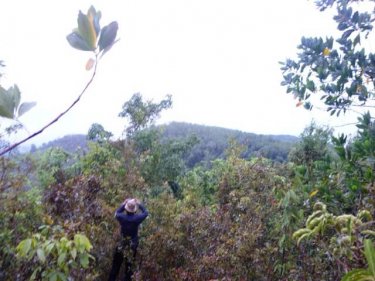






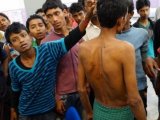
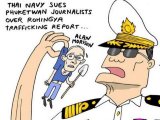

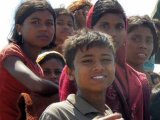
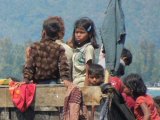


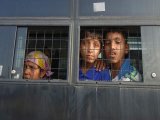

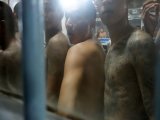
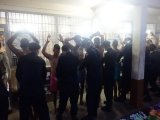


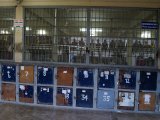

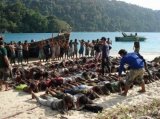
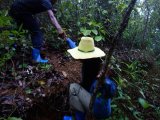

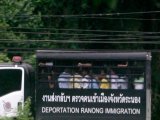

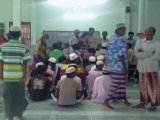
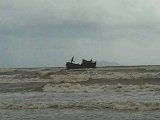
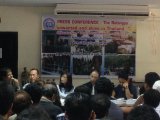
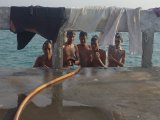
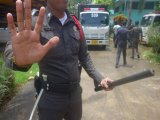
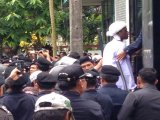

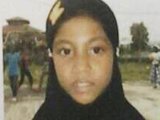
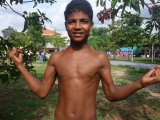
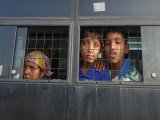
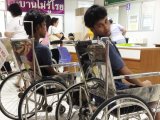
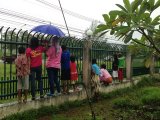

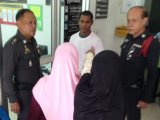

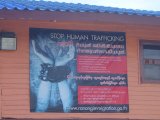
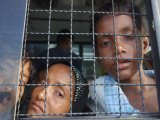
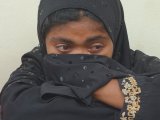

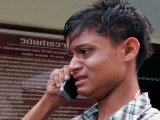

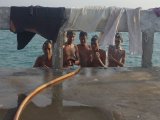
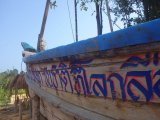
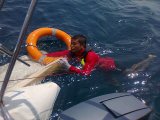
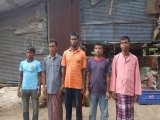
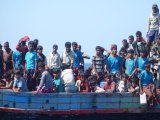
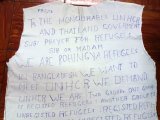
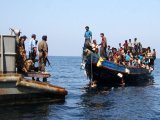
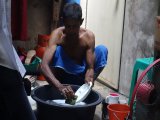

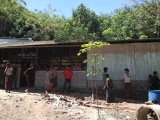
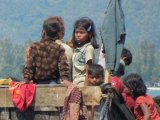

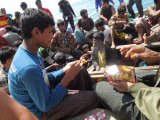
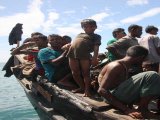



Why are they so hated in Myanmar?
Posted by Same, same but different on December 3, 2013 14:34